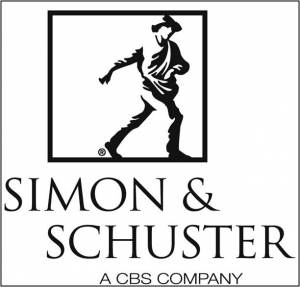 So remind me again: What are publishers for? Some kind of filter and quality bar to wade through the slush pile and weed out the dross, right? And if that means picking the best written books in fiction; surely it also means picking the most accurate and trustworthy works of non-fiction, no? I mean, that’s what justifies their big offices, cuts of royalties, favorable treatment by governments and international organizations, yes?
So remind me again: What are publishers for? Some kind of filter and quality bar to wade through the slush pile and weed out the dross, right? And if that means picking the best written books in fiction; surely it also means picking the most accurate and trustworthy works of non-fiction, no? I mean, that’s what justifies their big offices, cuts of royalties, favorable treatment by governments and international organizations, yes?

Well, apparently not, as Media Matters reminds us. Picking up on the embarrassing – for Threshold Books, an imprint of Simon & Schuster – expose of the pure fabrications at the heart of its recently-published account of the Benghazi Embassy siege, The Embassy House, by “Sergeant Morgan Jones” (with Damien Lewis), it leads off with a title that says it all: “Book Publishing’s Dirty Secret: Fact-Checking Is Basically Non-Existent.”
Apparently even having Damien Lewis on board wasn’t enough to reveal the deceits. Which is a pity, because, as the article states, ” there are few safeguards to prevent such a failure in an industry that provides only minimal review and fact-checking. Without in-house fact-checkers at most publishing houses, authors themselves typically bear the sole responsibility for the accuracy of their work.”
And what incentive is there for an author to do that? Especially when they’re a sock-puppet pseudonym fronting a piece of quick-buck cash-in ambulance chasing. Not like their good name is going to count for much in such cases – though you would have thought the publisher would worry more about the moral hazard they put themselves in. Let alone the wastage and pulped copies. Simon & Schuster was forced to withdraw the book after CBS brought the true facts to light, following reported disclosures by Obama administration officials who disputed the version put out by Simon Schuster’s highly conservative imprint. (Let’s bear in mind, by the way, that this is the same publishing house that let five titles appear under the V.C. Andrews name before letting slip the fact that the author herself was, in fact, dead.)
Co-author Damien Lewis, apparently a little more careful for his reputation, also put out a statement after the debacle: “If there are inconsistencies in the events as told in The Embassy House and Mr. Davies’s previous renderings of the story, Mr. Davies needs to answer those inconsistencies. Those who were injured on the night of Benghazi 9/11 deserve to know the truth, as do the families of those who lost their lives.”
Well, doesn’t Simon & Schuster have to answer for those inconsistencies too? The claim is that “publishers are already under huge market pressures and seem to be overworked every year, adding another function to their obligation is not a likely outcome.” Well, are they? Simon & Schuster is actually a division of CBS, which under Sumner Redstone’s chairmanship, has just reported its “best-ever third quarter results,” with revenues of $3.6 billion for the third quarter of 2013 alone. “CBS’s third quarter proves once again why content is king,” proclaims Redstone.
Worth bearing in mind next time some retrograde curmudgeon like Jonathan Franzen comes along to bemoan the passing of the days “when publication still assured some kind of quality control.” And there are still some authors who see Big Publishing as their sole defense against the onslaughts of rampant piracy and the demands of endless self-publishing self-promotion. Get over it. These people deserve only your contempt, not your royalty dollars.

































So, therefore, the argument here seems to run that BAD quality control (in the case of publishers) is worse than NONE (in the case of self-published ebooks). Sorry, don’t get it!
Bad quality control in self-published is an enduring and unfair myth. Many (although, not all) self-published authors do hire an editor to review, critique and improve their works. And here’s a well-respected voice in the field who tackles the subject with far more authority than me. http://www.deanwesleysmith.com/?p=10408
As an author who is both self-pulished and published, I was impressed by the time and effort spent by my small, independent publisher on quality control, with very restricted funds. When I was self-published, it was up to me – I did my best to check the facts, but nobody looked over my shoulder, and it would have been very helpful to have professional, outside input (which I could not have afforded). I think it is most unfair on publishers – many of whom are struggling now with the changes in the market – to make generalisations based on the Simon & Schuster case. And the fact is, that the advent of Amazon an the electronic market means that there has been a deluge of material launched on the market, much of which has been subject to no review whatsoever.